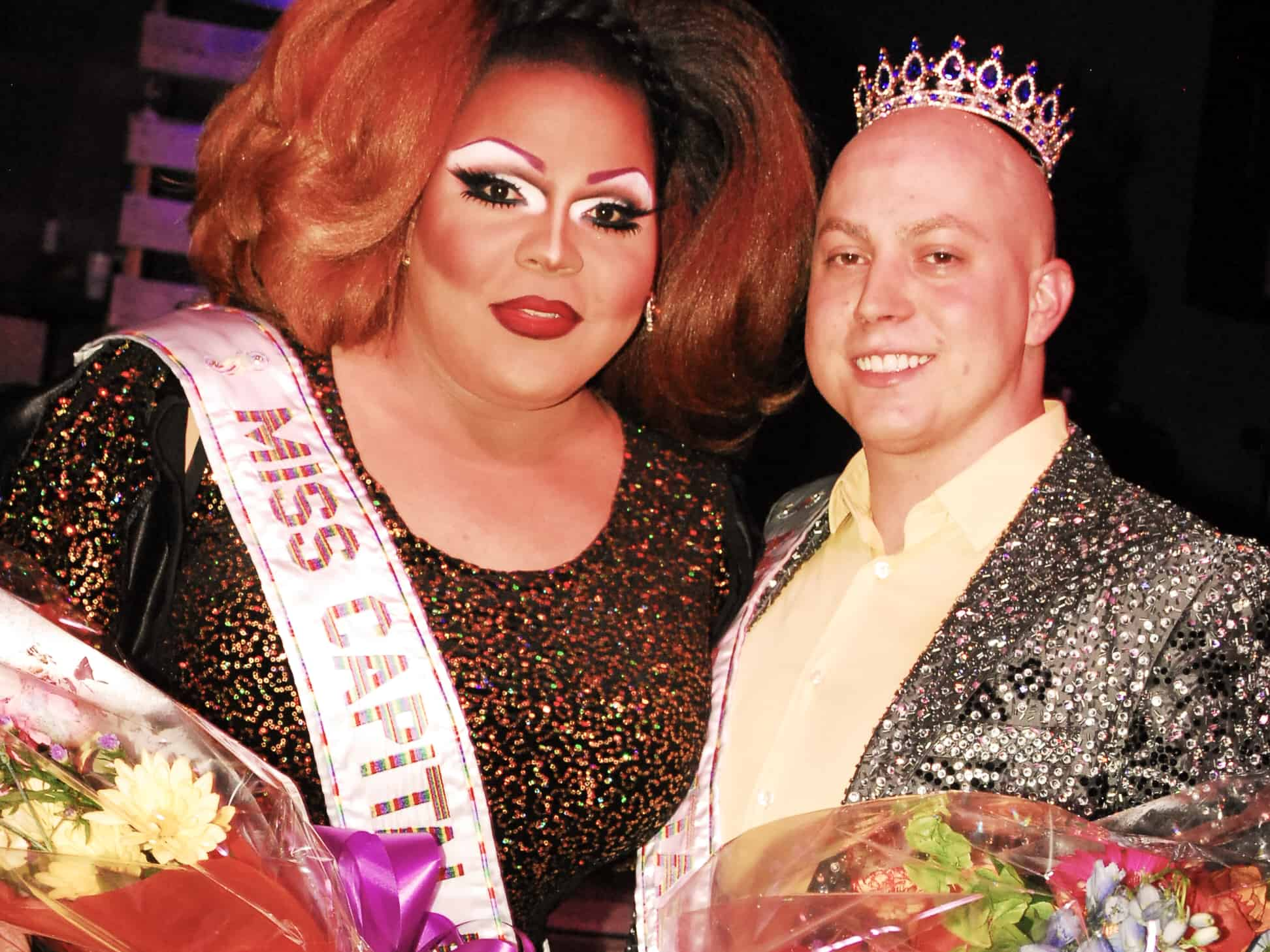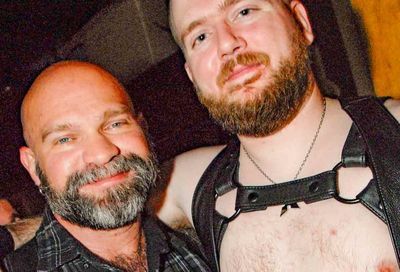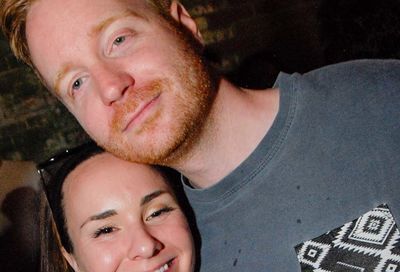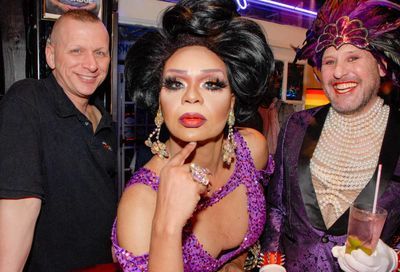Proposed Cut to “Festival Fund” Could Be Detrimental to Capital Pride
The $1.5 million cut would deprive festival organizers of financial assistance to cover the costs of various city services.

LGBTQ advocates are criticizing a proposed budget cut to a city program that helps support large-scale outdoor events, including the Capital Pride Parade and Festival.
The D.C. Council Committee on Business and Economic Development voted 4-0 last month to approve a series of budget recommendations, including a proposed cut of $1.5 million from the Festival Fund, also known as the Special Event Relief Fund.
The fund, which is made possible by the Office of the Deputy Mayor for Planning and Economic Development, allows organizers of festivals or outdoor special events to apply for financial assistance to cover the costs of street closings, security, and other city agency support services.
The recommendations are slated to be voted upon by the full council on Tuesday, May 16, and if approved, will become part of the District of Columbia’s fiscal year 2024 budget.
Ryan Bos, executive director of Capital Pride Alliance, told Metro Weekly in an interview that the costs of various city agency fees needed to carry out the Capital Pride Parade and Festival, as well as other Pride Weekend events, can cost between $550,000 and $750,000 per year.
Without the Festival Fund, the scale of the Pride-related events would likely have to change, as organizers would likely have to look at how to monetize different aspects of Capital Pride celebrations to generate additional revenue.
“Prior to 2022, there was very little financial reprieve or support from the D.C. government for events like Pride. So we relied heavily on fees for participating organizations and corporate sponsorships,” Bos said. “Thankfully, this fund became available and was able to ensure that events like Capital Pride, which are community-based, were able to continue to take place. It’s been a huge relief and support for us to ensure that events like Capital Pride can continue, especially since large-scale community events generate a lot of revenue for the D.C. government.”
The elimination of the Festival Fund would not only result in changes to the 2024 celebration of Capital Pride, but would have a significant impact on WorldPride 2025, a global celebration for which Washington, D.C. has been selected as host city.
The weekend-long WorldPride celebration is expected to draw hundreds of thousands of revelers globally, requiring a certain level of coordination of city services, ranging from police security to trash pickup after outdoor events.
Bos told Metro Weekly that Capital Pride is not the only event that would be affected by the elimination of the Festival Fund, pointing to events like the Cherry Blossom Festival, the H Street Festival, the Fiesta DC festival, which showcases entertainment and food from a variety of Latino cultures, and Porchfest, a series of music events bringing together local musical acts to perform on people’s front lawns and porches in various neighborhoods throughout the city.
Mayor Muriel Bowser expressed opposition to the elimination of the Festival Fund, as well as cuts of $3 million each for two programs providing assistance to small businesses and East of the River restaurants, which Bowser’s office has previously touted as essential to the District’s post-COVID “comeback,” in a letter to Council Chairman Phil Mendelson.
“The Council committees’ proposed changes to these investments…stand in the way of D.C.’s recovery,” the mayor wrote. “If we do not maximize investments to grow our population, our jobs, and our tax base to pre-pandemic levels, we will be unable to support the level of programs and services our residents need for the long-term.”
The councilmembers who initially voted to approve the Committee on Business and Economic Development’s budget recommendations were Councilmember Kenyan McDuffie (I-At-Large), the committee chairman, and Councilmembers Brooke Pinto (D-Ward 2), Charles Allen (D-Ward 6), and Vincent Gray (D-Ward 7).
McDuffie responded, noting that a number of cuts were proposed by the committee were made in order to restore funding for the Child Wealth Building Act, also known as the “Baby Bonds program,” a bill sponsored by the councilmember designed to help close the racial wealth gap by providing baby bonds to low-income families with children.
“As a former civil rights attorney and current champion for equity and inclusion on the Council, I support the Pride Parade and appreciate its mission to fight for equality and honor the history of the LGBTQ+ community in the District of Columbia,” McDuffie said in a statement. “However, the Mayor defunded the Child Wealth Building Act — a transformational program designed to help close the racial wealth gap in our city by investing in children born into poverty and, upon turning 18 years old, providing them with access to funds to pay for things like greater education, starting their own business, and purchasing a home.
“The mayor’s decision to defund the Baby Bonds program reneged on the promise that the city had made to low-income babies born as of October 1, 2021, and the Council’s Committee on Business and Economic Development made deep cuts to several programs in order to restore the Baby Bonds program and restore hope to thousands of poor families worried that their kids will not be able to afford to stay in D.C.,” McDuffie added. “I am working with the Council Chairman to identify any available funds to support the festival fund.”
Ahead of the Council’s vote on the budget recommendations on Tuesday, Bos said that Capital Pride has reached out to all 13 members of the body to request the money for the Festival Fund be restored.
“As you know, councilmembers enjoy participating in the Pride Parade,” Bos said. “So conversations have been had with those individuals who have been registering on behalf of council members. I would say we’ve gotten some positive feedback from some councilmembers who ‘get it.’
“From our point of view, it is important for the community and councilmembers to understand that organizations like ours are nonprofits providing a service by organizing events for our community,” he continued. “And those events generate a considerable amount of revenue for the D.C. government. Capital Pride alone, based on an economic report that we did back in 2019, generates more than enough revenue that offsets the cost of that $1.5 million [in the Festival Fund]. It creates and supports jobs for the folks who are building the tents, setting up the bike racks, providing security, all of those services, and it benefits local businesses when attendees go out to enjoy a meal, grab a drink, or go to the museums and galleries.
“There’s not only an economic impact, but a cultural impact that comes from hosting these large-scale events. That’s what makes communities vibrant, providing space for folks to engage with each other. So I would hope people see the cultural benefit that Pride brings as well.”
Editor’s note: This story was updated to include a response from Councilmember Kenyan McDuffie.
Support Metro Weekly’s Journalism
These are challenging times for news organizations. And yet it’s crucial we stay active and provide vital resources and information to both our local readers and the world. So won’t you please take a moment and consider supporting Metro Weekly with a membership? For as little as $5 a month, you can help ensure Metro Weekly magazine and MetroWeekly.com remain free, viable resources as we provide the best, most diverse, culturally-resonant LGBTQ coverage in both the D.C. region and around the world. Memberships come with exclusive perks and discounts, your own personal digital delivery of each week’s magazine (and an archive), access to our Member's Lounge when it launches this fall, and exclusive members-only items like Metro Weekly Membership Mugs and Tote Bags! Check out all our membership levels here and please join us today!





















